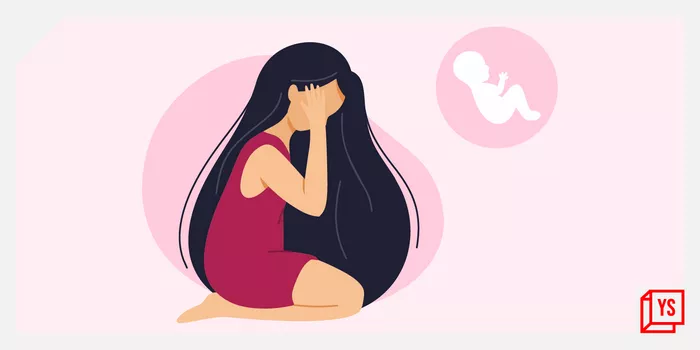Endometriosis is a chronic condition in which tissue similar to the lining of the uterus grows outside the uterus. It can cause severe pain, heavy periods, and infertility. While most people associate endometriosis with reproductive health, research suggests that it may also affect the immune system.
The immune system plays a crucial role in protecting the body from infections and diseases. It consists of a network of cells and proteins that detect and fight harmful invaders. When the immune system is not functioning properly, the body may become more vulnerable to illness.
Endometriosis is often linked to immune system dysfunction. Many women with this condition experience inflammation, increased autoimmune activity, and a reduced ability to remove abnormal tissue. Understanding how endometriosis affects immunity can help patients manage symptoms and explore new treatment options.
What Is the Role of the Immune System?
How the Immune System Works
The immune system consists of white blood cells, antibodies, and specialized proteins that work together to fight infections. It helps the body recognize foreign invaders, such as bacteria and viruses, and prevents them from causing harm.
Immune Response to Abnormal Cells
The immune system is also responsible for removing damaged or abnormal cells. This process helps prevent the growth of harmful tissue, including the type found in endometriosis.
How Endometriosis Affects the Immune System
Inflammation and Immune Dysfunction
Women with endometriosis often have higher levels of inflammation in their bodies. Inflammation is a natural immune response, but when it becomes chronic, it can lead to pain and tissue damage.
Failure to Remove Endometrial-Like Tissue
A healthy immune system should be able to identify and remove misplaced endometrial-like cells. However, in women with endometriosis, the immune system fails to do this effectively. This allows the tissue to grow in areas where it does not belong, such as the ovaries, fallopian tubes, and intestines.
Autoimmune Reactions
Some studies suggest that endometriosis may be linked to autoimmune conditions. An autoimmune disease occurs when the immune system mistakenly attacks the body’s own tissues. Women with endometriosis are more likely to have conditions such as lupus, rheumatoid arthritis, and Hashimoto’s thyroiditis.
Does Endometriosis Weaken the Immune System?
Increased Susceptibility to Infections
Women with endometriosis may have a weakened immune response, making them more prone to infections. This includes bacterial and viral infections, which can cause additional health problems.
Altered White Blood Cell Function
White blood cells help the body fight infections and remove unwanted tissue. In women with endometriosis, these cells may not function properly, leading to a reduced ability to remove harmful cells and prevent inflammation.
Hormonal Influence on Immunity
Hormones play a significant role in regulating the immune system. Estrogen, which is often elevated in women with endometriosis, can affect immune function. High levels of estrogen may contribute to chronic inflammation and immune dysfunction.
Can Treating Endometriosis Improve Immune Function?
Reducing Inflammation
Treatments that reduce inflammation may help improve immune function. Anti-inflammatory medications, such as nonsteroidal anti-inflammatory drugs (NSAIDs), can help lower inflammation levels in the body.
Hormonal Therapy
Hormonal treatments, such as birth control pills and progesterone therapy, can help regulate estrogen levels. This may improve immune function and reduce symptoms.
Surgical Removal of Endometrial Tissue
In some cases, surgery may be necessary to remove excess endometrial tissue. This can help reduce inflammation and improve the body’s ability to regulate immune responses.
Lifestyle Changes to Support the Immune System
A Healthy Diet
Eating a balanced diet rich in fruits, vegetables, and healthy fats can help reduce inflammation and support immune function. Foods rich in antioxidants, such as berries and leafy greens, may help protect cells from damage.
Regular Exercise
Physical activity can help regulate the immune system and reduce inflammation. Gentle exercises, such as yoga and walking, may be beneficial for women with endometriosis.
Stress Management
Chronic stress can weaken the immune system and worsen inflammation. Practices such as meditation, deep breathing, and therapy can help manage stress and improve overall health.
Adequate Sleep
Lack of sleep can impair immune function. Getting enough rest each night is essential for the body’s ability to heal and fight infections.
Conclusion
Endometriosis is more than a reproductive health condition; it also affects the immune system. Women with this condition often experience chronic inflammation, impaired immune responses, and a higher risk of autoimmune diseases.
Managing endometriosis through medical treatments and lifestyle changes may help support immune function. Reducing inflammation, balancing hormones, and maintaining a healthy lifestyle can improve overall well-being.
Understanding the link between endometriosis and the immune system can help women make informed decisions about their health. Consulting a doctor for personalized treatment options is essential for managing symptoms and improving quality of life.
Related topics:
























